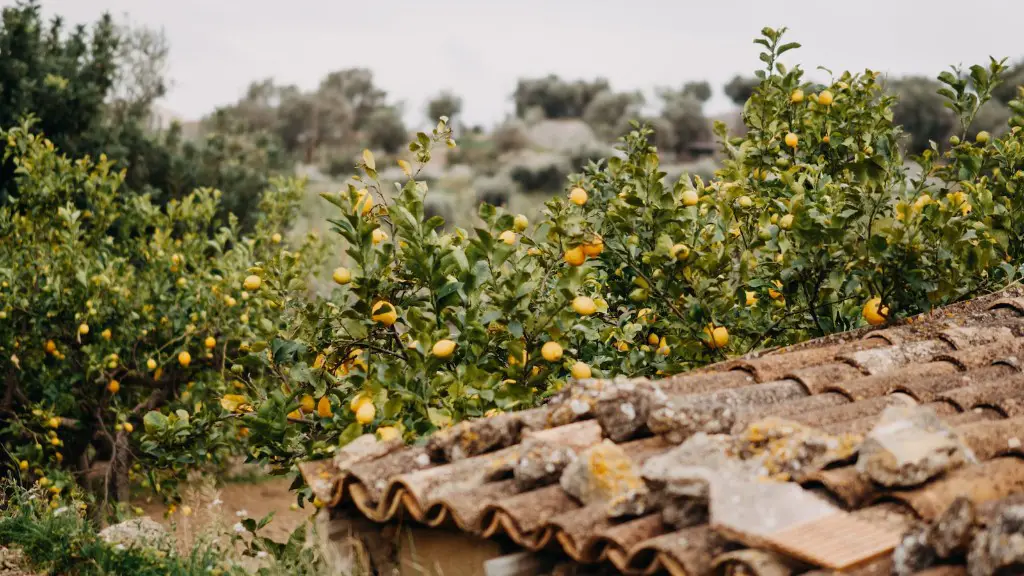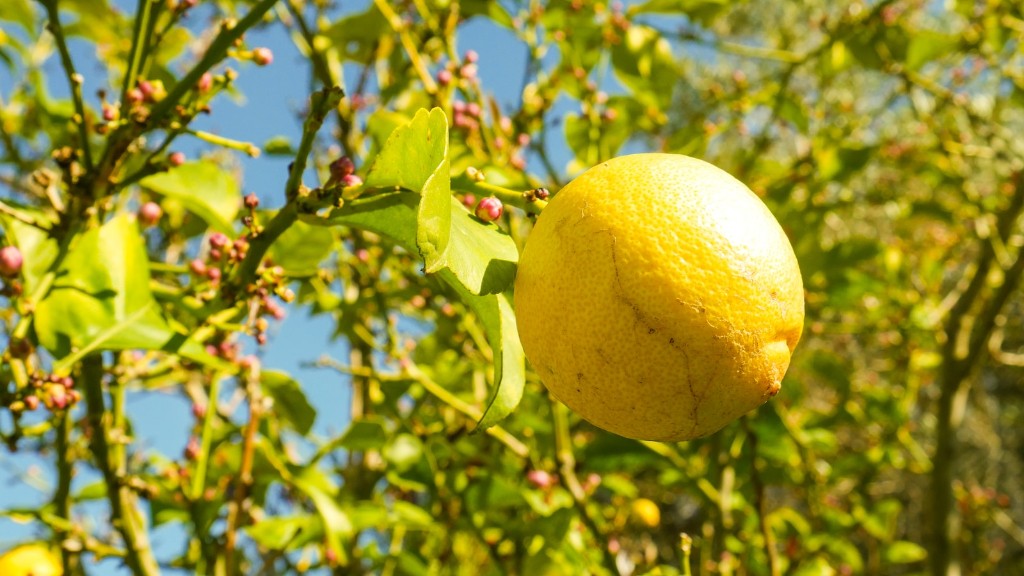The lemon tree is a flowering plant, belonging to the citrus botanical family. Lemons are a type of citrus fruit, originating in the tropical and subtropical regions of South America, Southeast Asia and the Middle East. The scientific name of lemon tree is Citrus limon, and is an evergreen perennial shrub or small tree. It grows up to 20 feet tall with a smooth, gray bark. The leaves of the lemon tree are ovate-lanceolate and dark-green in color. The lemon fruits are ellipsoid in shape and yellow colored when ripe, which usually appear in early summer or late spring.
Lemon tree flowers appear in clusters of three to seven and are white or pink in color. They usually appear during the late spring or early summer; depending on the climate, the tree can flower multiple times a year. The flowers have a truly inviting aroma and attract both beneficial insects and pollinators to the garden. Lemon fruits develop from the flowers, and take approximately four to six months to ripen. On average, a single tree can produce 100 to 500 fruits each season, depending on its care and the climate.
Lemon trees adapt to many different soils and climates, provided they have a warm sheltered spot in their garden with full sun. The tree needs to be watered regularly, even when the fruit is growing, in order to avoid the fruit having a dry and leathery outer skin. Fertilization is key to the health of the tree and should be done at least once a year with a balanced fertilizer for citrus trees. To ensure the tree remains healthy, it is advisable to prune regularly, removing any suckers and branches that shade the root zone.
In conclusion, the lemon tree is a flowering plant in the Citrus botanical family. It originates from the tropical parts of South America, Southeast Asia and the Middle East and has a scientific name of Citrus limon. Lemon trees produce fragrant white or pink flowers and ellipsoid yellow fruits. They need a sunny sheltered spot with regular irrigation and fertilization. Pruning is recommended for healthy and profuse flowering and fruiting.
Care of Lemon Trees
Care of lemon trees is very important in order to achieve profuse flowering, healthy fruits, and prevent diseases. Lemon trees like well-drained, slightly acidic soils and prefer regular irrigations in warmer climates to produce healthy fruits. Mulching is an effective way to keep the soil’s temperature and moisture constant. Fertilization should be done at least once a year with a specific fertilizer for citrus. Pruning lemon trees increases air circulation, prevents diseases, and improves the yields of the fruit.
Diseases and Pests of Lemon Trees
Diseases and pests can cause considerable damage to lemon trees, with most of them having the ability to spread quickly if not treated at the right time. Citrus canker is a bacterial disease that can cause lesions, defoliation and fruit drop. Canker lesions should be carefully removed and the tree should be sprayed with copper fungicide, followed by other prophylactic measures. Aphids and spider mites are some of the most common pest of lemon tree, which can be treated with either neem oil or insecticides.
Harvest and Storage of Lemons
Lemons are generally harvested when they are still green, although they can also be harvested when they turn yellow. Lemons should be handpicked as they ripen, cutting off the stem with a pair of garden shears. Lemons can be stored in the refrigerator in airtight containers for up to two weeks. They can also be frozen for longer times, but they should be unfrozen before consumption.
Uses of Lemons
The lemon tree has a variety of uses. The leaves can be used as flavouring, while the flowers and essential oils have been used medicinally for centuries. Fruits can be eaten raw, dried or juiced, or even used to make preserves. The most common use for the lemon fruit is in fresh lemonade. Lemons are also used for cooking, baking, cocktails and salads. Lemons are the perfect seasoning for fish and poultry, and are used in marinades to tenderize them.
Conclusion
The lemon tree is a flowering plant belonging to the citrus botanical family. It has a variety of uses, including cooking, baking and medicinal uses. Care of lemon trees is important for healthy fruits and prevention of diseases and pests. Lemons should be harvested when they are still green, and stored properly in the refrigerator to maintain their freshness for longer durations. The fragrant flowers and juiced fruits of lemon tree are widely used for numerous culinary applications.


